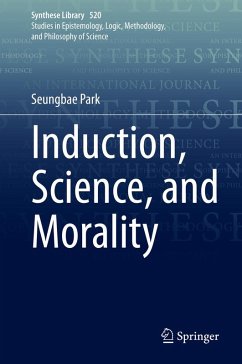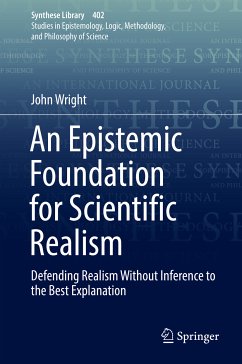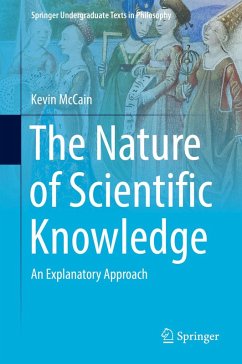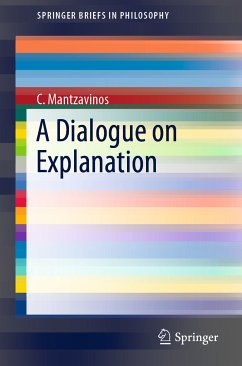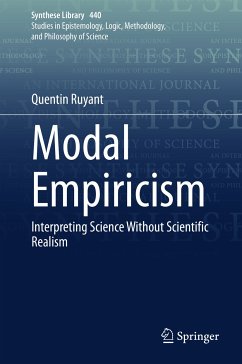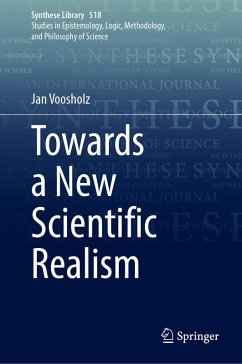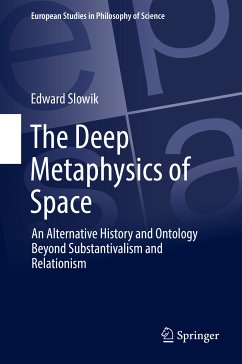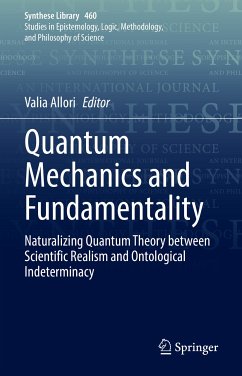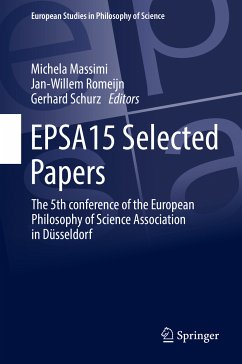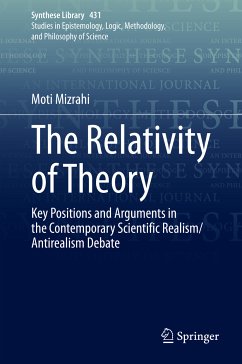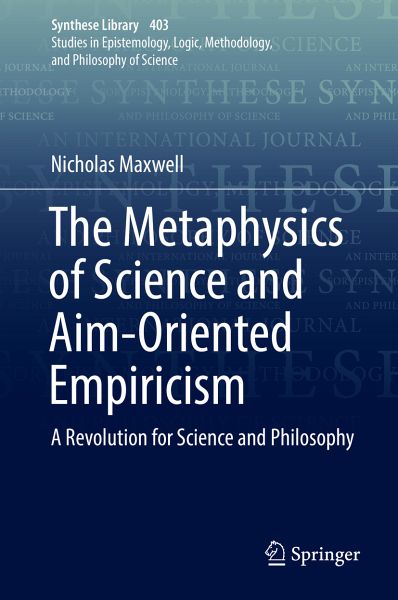
The Metaphysics of Science and Aim-Oriented Empiricism (eBook, PDF)
A Revolution for Science and Philosophy

PAYBACK Punkte
36 °P sammeln!
This book gives an account of work that I have done over a period of decades that sets out to solve two fundamental problems of philosophy: the mind-body problem and the problem of induction. Remarkably, these revolutionary contributions to philosophy turn out to have dramatic implications for a wide range of issues outside philosophy itself, most notably for the capacity of humanity to resolve current grave global problems and make progress towards a better, wiser world.A key element of the proposed solution to the first problem is that physics is about only a highly specialized aspect of all...
This book gives an account of work that I have done over a period of decades that sets out to solve two fundamental problems of philosophy: the mind-body problem and the problem of induction. Remarkably, these revolutionary contributions to philosophy turn out to have dramatic implications for a wide range of issues outside philosophy itself, most notably for the capacity of humanity to resolve current grave global problems and make progress towards a better, wiser world.
A key element of the proposed solution to the first problem is that physics is about only a highly specialized aspect of all that there is - the causally efficacious aspect. Once this is understood, it ceases to be a mystery that natural science says nothing about the experiential aspect of reality, the colours we perceive, the inner experiences we are aware of. That natural science is silent about the experiential aspect of reality is no reason whatsoever to holdthat the experiential does not objectively exist.
A key element of the proposed solution to the second problem is that physics, in persistently accepting unified theories only, thereby makes a substantial metaphysical assumption about the universe: it is such that a unified pattern of physical law runs through all phenomena. We need a new conception, and kind, of physics that acknowledges, and actively seeks to improve, metaphysical presuppositions inherent in the methods of physics. The problematic aims and methods of physics need to be improved as physics proceeds.
These are the ideas that have fruitful implications, I set out to show, for a wide range of issues: for philosophy itself, for physics, for natural science more generally, for the social sciences, for education, for the academic enterprise as a whole and, most important of all, for the capacity of humanity to learn how to solve the grave global problems that menace our future, and thus make progress to a better, wiser world. It is not just science that has problematic aims; in life too our aims, whether personal, social or institutional, are all too often profoundly problematic, and in urgent need of improvement. We need a new kind of academic enterprise which helps humanity put aims-and-methods improving meta-methods into practice in personal and social life, so that we may come to do better at achieving what is of value in life, and make progress towards a saner, wiser world.
This body of work of mine has met with critical acclaim. Despite that, astonishingly, it has been ignored by mainstream philosophy. In the book I discuss the recent work of over 100 philosophers on the mind-body problem and the metaphysics of science, and show that my earlier, highly relevant work on these issues is universally ignored, the quality of subsequent work suffering as a result.
My hope, in publishing this book, is that my fellow philosophers will cometo appreciate the intellectual value of my proposed solutions to the mind-body problem and the problem of induction, and will, as a result, join with me in attempting to convince our fellow academics that we need to bring about an intellectual/institutional revolution in academic inquiry so that it takes up its proper task of helping humanity learn how to solve problems of living, including global problems, and make progress towards as good, as wise and enlightened a world as possible.
A key element of the proposed solution to the first problem is that physics is about only a highly specialized aspect of all that there is - the causally efficacious aspect. Once this is understood, it ceases to be a mystery that natural science says nothing about the experiential aspect of reality, the colours we perceive, the inner experiences we are aware of. That natural science is silent about the experiential aspect of reality is no reason whatsoever to holdthat the experiential does not objectively exist.
A key element of the proposed solution to the second problem is that physics, in persistently accepting unified theories only, thereby makes a substantial metaphysical assumption about the universe: it is such that a unified pattern of physical law runs through all phenomena. We need a new conception, and kind, of physics that acknowledges, and actively seeks to improve, metaphysical presuppositions inherent in the methods of physics. The problematic aims and methods of physics need to be improved as physics proceeds.
These are the ideas that have fruitful implications, I set out to show, for a wide range of issues: for philosophy itself, for physics, for natural science more generally, for the social sciences, for education, for the academic enterprise as a whole and, most important of all, for the capacity of humanity to learn how to solve the grave global problems that menace our future, and thus make progress to a better, wiser world. It is not just science that has problematic aims; in life too our aims, whether personal, social or institutional, are all too often profoundly problematic, and in urgent need of improvement. We need a new kind of academic enterprise which helps humanity put aims-and-methods improving meta-methods into practice in personal and social life, so that we may come to do better at achieving what is of value in life, and make progress towards a saner, wiser world.
This body of work of mine has met with critical acclaim. Despite that, astonishingly, it has been ignored by mainstream philosophy. In the book I discuss the recent work of over 100 philosophers on the mind-body problem and the metaphysics of science, and show that my earlier, highly relevant work on these issues is universally ignored, the quality of subsequent work suffering as a result.
My hope, in publishing this book, is that my fellow philosophers will cometo appreciate the intellectual value of my proposed solutions to the mind-body problem and the problem of induction, and will, as a result, join with me in attempting to convince our fellow academics that we need to bring about an intellectual/institutional revolution in academic inquiry so that it takes up its proper task of helping humanity learn how to solve problems of living, including global problems, and make progress towards as good, as wise and enlightened a world as possible.
Dieser Download kann aus rechtlichen Gründen nur mit Rechnungsadresse in A, B, BG, CY, CZ, D, DK, EW, E, FIN, F, GR, HR, H, IRL, I, LT, L, LR, M, NL, PL, P, R, S, SLO, SK ausgeliefert werden.



